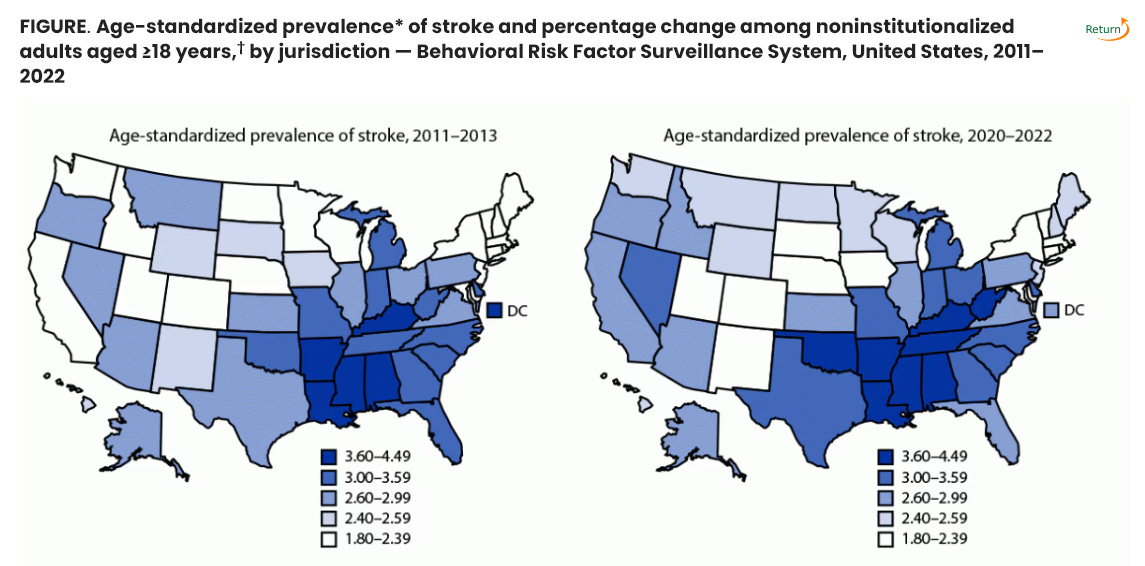A Good Day To Advocate for Better Healthcare
If there are subjects you’d like to see or improvements made, please let me know using the comment button below. I received a note from a professor friend of mine this morning, Angela, who asked that we cover insurance denials. I will begin working on that shortly.
Videos of these newsletters appear on Youtube on this channel. They are on hold until early June.
Mental Health Facilities & Private Equity
Private equity firms now account for as much as a quarter of practices providing behavioral health services in some states, according to a new study by researchers from Oregon Health & Science University, the University of Pennsylvania and Yale University.
The finding, published today in the journal JAMA Psychiatry (paywall) appears to reflect a growing trend across medicine as private equity firms acquire medical practices with an eye toward maximizing profits.
Researchers used financial databases to identify behavioral health practices acquired by private equity investors between Jan. 1, 2012, and July 31, 2023.
They found 642 mental health clinics and 1,152 clinics treating substance use disorders that had undergone private equity acquisition over that period, as of last year, constituting 6.2% of all mental health facilities and 7.1% of addiction treatment facilities nationwide.
In Colorado, Texas and North Carolina, the proportion of private equity-owned practices accounted for roughly a quarter of all facilities providing mental health treatment.
This ownership has implications for health care prices and quality. Part of the reason for concern is private equity’s “short investment time frame (usually within 3-7 years) and distinct business model to squeeze income out as fast as possible may make it difficult to provide the quality of care needed to actually help patients. All of this in the face of staffing shortages. (OHSU News)
We have previously seen that when private equity owns nursing homes death rates go up by 10% in one year. Patients are over medicated and staff is reduced. Similarly in hospitals, the rate of inline infections increase dramatically as does the incidence of preventable accidents and injuries to patients. Mostly because staffing is reduced and those that are left can’t cope with the increased workload.
So far there is no study that identifies quality of care issues but I think one will show up shortly as they have been active in this market for more than 10 years. Watch this space.
Privately Owned Medical Resources
In the past we have discussed private equity investments in healthcare and private ownership. They are different. Private equity involves a company assembling investors and purchasing a share or complete ownership of a facility or provider network.
Private companies can do the same. So can publicly traded companies. Their behaviors are all very similar. Squeeze the most money they can out of the system for their shareholders or investors.
One of the largest of such companies is HCA. It is publicly traded and owns about 500 hospitals world wide. It has a checkered but far from unique history. Florida Senator Rick Scott (Republican) oversaw the largest criminal Medicare/Medicaid cheating scandal in the 1990’s when he was the CEO. Between civil and criminal penalties they paid back more than $2 billion to the US government. Here is his Wikipedia page.
HCA is heavily involved in buying up hospitals and trying to make them profitable. One hospital they purchased is Mission Hospital in western North Carolina. The reason I mention this is that I came across a story this morning about urology staff leaving Mission because they are upset with patient and employee policies,
I began looking into it and discovered a long history of grievances against HCA at Mission. These include cuts that risk patient safety, renegotiating contracts with doctors, non-transparent charity care (per the company’s policy) so that it is difficult to see who might really be eligible (only the Chief Medical Officer knows for sure. Lack of autonomy for physicians (follow the policy, not your best medical knowledge. and of course pay. The pay issue became so severe that Due to HCA’s insistence on significant cuts in physician pay, PML Pathology and the Cancer Center of Western North Carolina, both of which have long had contractual relationships with Mission, have ended their contracts with Mission/HCA.
During the negotiations and public discussions leading up to the sale, Mission officials were repeatedly asked, “If Mission is losing money, how will HCA make money by purchasing Mission?” The only answer we ever received was that HCA would make money through more efficient purchasing power and staff reductions in redundant back office, administrative positions. It is clear now that this was a lie. Instead, HCA has chosen to make its money by reducing charity care, eliminating medical and unit administrative staff to the detriment of patient care and safety, and sacrificing entire physician practice groups with long-standing contractual relationships by demanding significant reductions in pay. (Citizen Times)
Stroke
Stroke is the fifth leading cause of death in the United States and a leading cause of long-term disability. During 2006–2010, stroke prevalence decreased by 3.7%.
From 2011–2013 to 2020–2022, U.S. stroke prevalence increased by 7.8%. Increases occurred among adults aged 18–64 years; females and males; non-Hispanic Black or African American (Black), non-Hispanic White, and Hispanic or Latino (Hispanic) adults; and adults with less than a college degree. Stroke prevalence was higher among adults aged ≥65 years; non-Hispanic American Indian or Alaska Native, non-Hispanic Native Hawaiian or Pacific Islander, and Black adults; and adults with lower education. Stroke prevalence decreased in the District of Columbia and increased in 10 states. (CDC summary), (CDC Full Report)
Diet, exercise, control blood pressure and less stress. I hear a dear friend’s voice in my head reminding me about meditation.
The chart on the left is the prevalence of stroke 2011-2013, on the right 2020-2021. Darker color is worse. A statistically significant increase occurred in 10 states (California, Colorado, Minnesota, Mississippi, North Carolina, North Dakota, Ohio, Oklahoma, Tennessee, and West Virginia. BTW Ohio and Tennessee had some of the highest increases - over 20%.
If you can get medical help when a stroke occurs the impact can be greatly mitigated.
Act FAST is a quick way to address stroke. Here are the Act F.A.S.T questions:
“Face: Does one side of the face droop when smiling?
Arms: Does one arm drift downward when both arms are raised?
Speech: Is speech slurred or strange when repeating a simple phrase?
Time: If you see any of these signs, call 9-1-1 right away.”§§ Acting F.A.S.T is key to stroke survival.
Resources
Find My Elected Officials
Contact State and Federal Representatives - phone and email
Healthcare Advocacy (Us) Website
Our Newsletter resources including reproductive healthcare - Healthcare Advocacy Reading List
Important Healthcare Resources
League of Women Voters Healthcare Reform Toolkit
Organizations to Contact
National Nurses United Medicare4All
Physicians for a National Health Program
One Payer States
Healthcare Now
Reproductive Health
NARAL - Pro Choice America
Charley. chatbot abortion resource - make sure to use a secure incognito browser if you live in a state that has banned abortion
Planned Parenthood
Miscarriage and Abortion Hotline has references about where to procure abortion medications. They also assist women in the process of self managed abortion or miscarriage by phone or text and will respond in an hour. Details and hours of operation at their website.
United State of Women Reproductive health page (bottom of the page) has important resources such as medical support, access to Telehealth, prescriptions by mail, and legal support references.
Practice careful communications - The Digital Defense Fund has a number of tips to keep texts, calls, and internet use private. Here is their site.
If you need financial help with an abortion try abortionfunds.org
Claims Denials and Appeals & What to Do
Appeal a Healthcare Decision
Appeal/Negotiate a Hospital Bill
Disinformation Management
Cybersecurity Infrastructure Security Agency
Save Democracy
Chop Wood, Carry Water by Jessica Cravens
RESISTBOT
Link to the RESISTBOT site to learn more
Link to Chop Wood, Carry Water RESISTBOT write up
Learn About Healthcare Policy
The Kaiser Family Foundation has put together an online course about healthcare policy. It is called Health Policy 101. It is free and here is the link to their course page. I will keep this note here for a few days.
Thanks for reading Healthcare Advocacy! Subscribe for free to receive new posts





